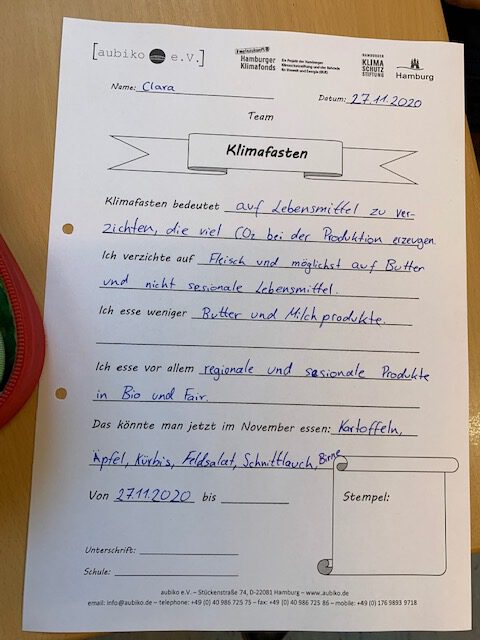Max Brauer School November 26-27, 2020
Report on the climate protection project „Climate Fasting. How can nutrition be changed in a climate-friendly way?“ at the Max Brauer School in Hamburg-Altona.
Report on the climate protection project „Climate Fasting. How can nutrition be changed in a climate-friendly way?“ at the Max Brauer School in Hamburg-Altona.
On Thursday, as part of our climate protection project „Climate Fasting. How can we change our diet in a climate-friendly way?“, we visited students of the 8th grade of the Max-Brauer-School in Hamburg-Altona. The project is sponsored by the Hamburg Climate Protection Foundation and is being carried out with a total of 12 groups of students.
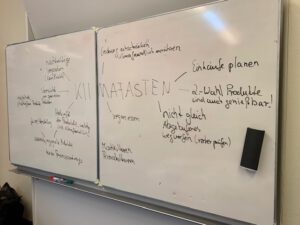
As an introduction to the topic, we activated the already extensive prior knowledge about climate change together with class 8c.
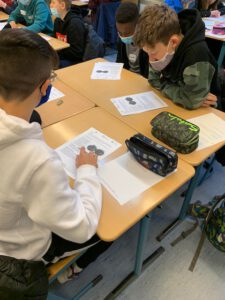
This facilitated the transition to the topic of climate-friendly nutrition. The students visibly found it easy to create a link between the two contents, which led to a lively discussion.
Our primary goal was for the students to reflect on their consumption behavior, especially with regard to nutrition, and to develop options for more sustainable consumption and climate-friendly nutrition. Through different playful approaches such as „food activity“, „plate tool“ and „CO2 memory“, the participants learned how to determine the CO2 emission of food and which foods are climate-damaging and climate-friendly.
We ended a fun first day with a debate on regional and seasonal products and considered which ingredients could be more environmentally friendly on the occasion of the season. In a vote on which climate-neutral dish to cook the next day, the participants almost unanimously chose a couscous salad with pumpkin.
On Friday, we started full of anticipation into the second project day, on which we wanted to put the theoretical knowledge we had gained into practice – shopping and cooking together was on the agenda! For this, we divided the students into two groups and created two similar/same shopping lists. Both groups went to different supermarkets and bought the necessary ingredients. In the process, the class was able to identify differences in food origins, price, and availability, which we discussed together back in the classroom.
After the successful field trip, the students transformed their classroom into a kitchen and started to transform the purchased products into a delicious couscous salad with pumpkin, feta and onions. Yum!
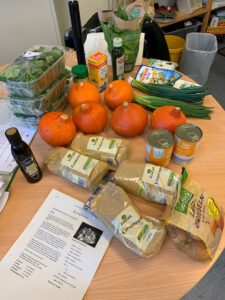
At the end of an exciting project, all participants created their personal „action plan“ on how they can eat more climate-friendly in the future and which products they should avoid.
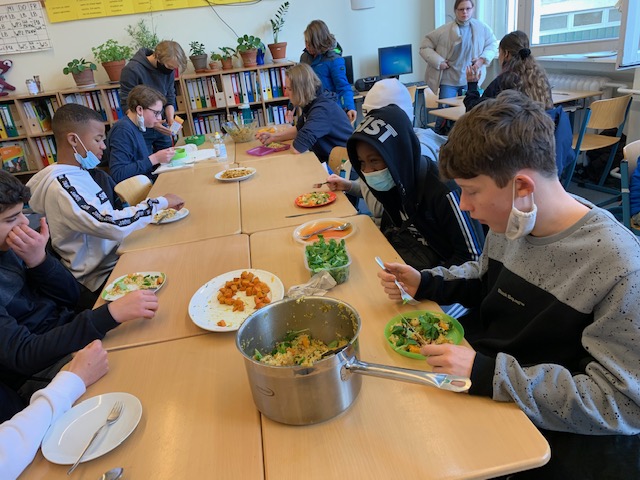
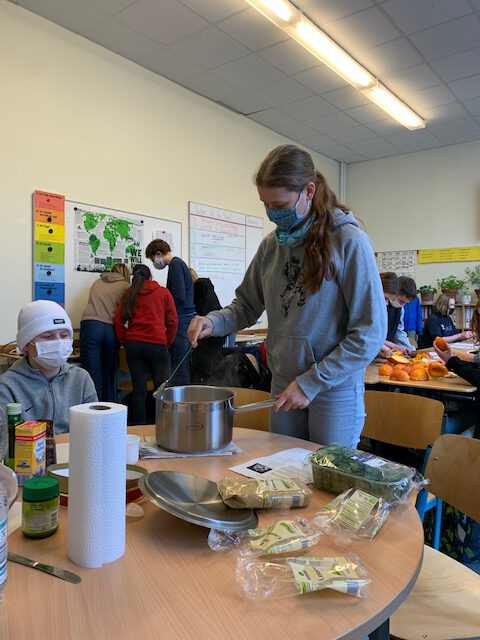
We from aubiko e.V. would like to thank the organizers from the school and all the students for their commitment! We are looking forward to working with you again and hope that you had as much fun as we did!
Your team from aubiko e.V.
